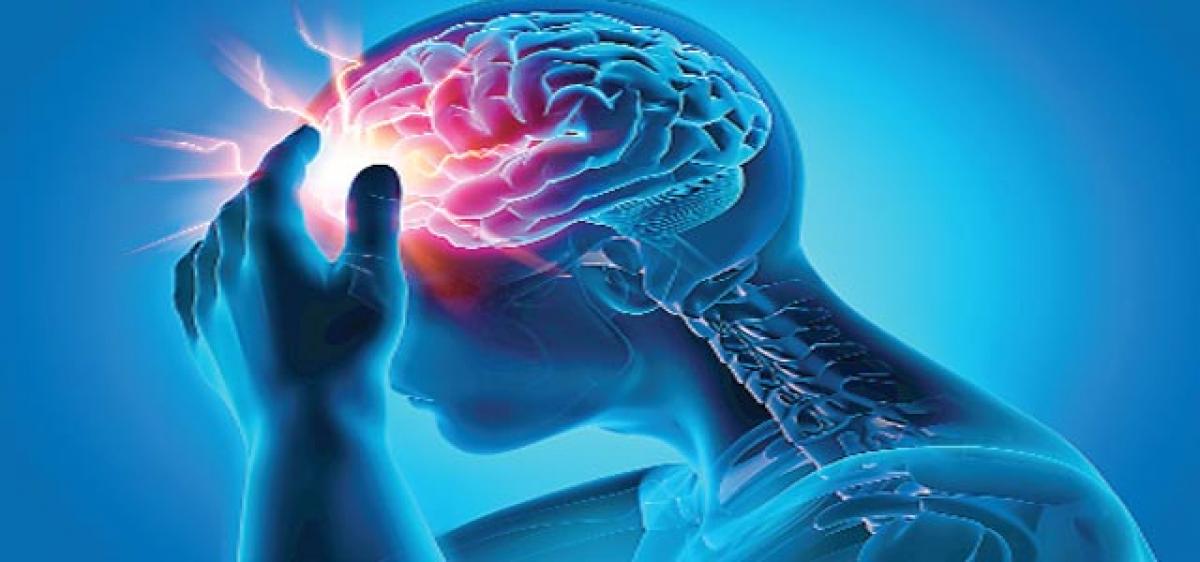Busting myths surrounding epilepsy

The monthly health lecture organised by the Public Gardens Walkers’ Association in Nampally featured on ‘Epilepsy (Fits) – Myths and Facts’ this Sunday.
“Epilepsy can be treated with inexpensive medication.” - Apollo Neurologist Dr Rajesh Reddy
The monthly health lecture organised by the Public Gardens Walkers’ Association in Nampally featured on ‘Epilepsy (Fits) – Myths and Facts’ this Sunday. As part of this, Sr Consultant Neurologist from Apollo Hospitals, Dr C Rajesh Reddy addressed the gathering. “The chronic disorder of the brain affects people worldwide,” he said.
“It is characterised by recurrent seizures, which are brief episodes of involuntary movements that may involve a part of the body (partial) or the entire body (generalised), and are sometimes accompanied by loss of consciousness, urinary and faecal incontinence,” informed the doctor.
The condition is one of the world’s oldest recognised, with written records dating back to 4,000 BC. “Fear, misunderstanding, discrimination and social stigma have surrounded epilepsy for centuries. This stigma continues in many countries today and can impact on the quality of life for people with the disorder and their families,” said Dr Reddy.
Approximately 50 million people worldwide have epilepsy, making it one of the most common neurological diseases globally. Nearly 80 per cent of people with the disease live in low and middle income countries.
“All seizures are not epilepsy,” informed Dr Reddy. “For example seizures can be seen in disorders of low blood glucose, high fever, liver and kidney failure and alcoholic withdrawal. These are not epilepsy,” he added.
“Epileptic seizures arise from within the brain. In a large majority of patients it is not hereditary. Only in certain types of epilepsies, the ability is inherited to an extent of two to four per cent, which means a great majority do not have hereditary factor. This is one of the greatest myths in epilepsy,” said Dr Reddy.
People with seizures tend to have more physical problems, such as fractures and bruising from injuries related to seizures, as well as higher rates of psychological conditions, including anxiety and depression.
Similarly, the risk of premature death in people with epilepsy is up to three times higher than the general population, with the highest rates found in low and middle income countries and rural versus urban areas. “Epilepsy can be treated easily and affordably with inexpensive daily medication,” said Dr Reddy.
The doctor cited recent studies in both low and middle income countries that have shown that up to 70 per cent of children and adults with epilepsy can be successfully treated. “Furthermore, after two to five years of successful treatment and being seizure-free, drugs can be withdrawn without subsequent relapse,” he revealed.
Treatment gap
In low and middle income countries, about three fourths of people with epilepsy may not receive the treatment they need. This is called the “treatment gap.”
Dr Reddy shared a recent study that found the average availability of generic antiepileptic medicines in the public sector of low and middle income countries to be less than 50 per cent. “This may act as a barrier to accessing treatment. It is possible to diagnose and treat most people with epilepsy at the primary healthcare level without the use of sophisticated equipment,” he said.
“However, the lack of trained healthcare providers can act as a barrier to treatment for people with epilepsy. There are special challenges in treating epilepsy in women particularly during pregnancy and lactation for the risk of AEDs causing effects on foetus and newborn,” he added.
Members of PGWA that included Ghulam Yazdani, Chairman; Pramod Kumar Kedia, Vice-President; Dr Purshottam Das, Gen Secretary; Vishwanath Agarwal, Jt Secretary; Sohanlal Kadel, Jt Secretary; BL Pershad Jaiswal, Treasurer; Prof Mohd. Masood Ahmed, Health Care Advisor and patrons B Sreekanth Reddy and G Ekember Reddy were present.
Known causes
- Brain damage from prenatal or perinatal injuries
- Congenital abnormalities with associated brain malformations
- Severe head injury
- Brain stroke
- Infections of the brain
- Genetic syndromes
- Brain tumours
Possible triggers
- There is often no apparent reason why a seizure occurs at one time and not at another. However, some people with epilepsy find that certain triggers make a seizure more likely.
- Stress or anxiety.
- Medicines such as antidepressants and antipsychotics
- Lack of sleep or tiredness
- Irregular meals which causes low blood sugar level
- Heavy alcohol intake
- Flickering lights such as from strobe lighting or video games
- Menstruation











